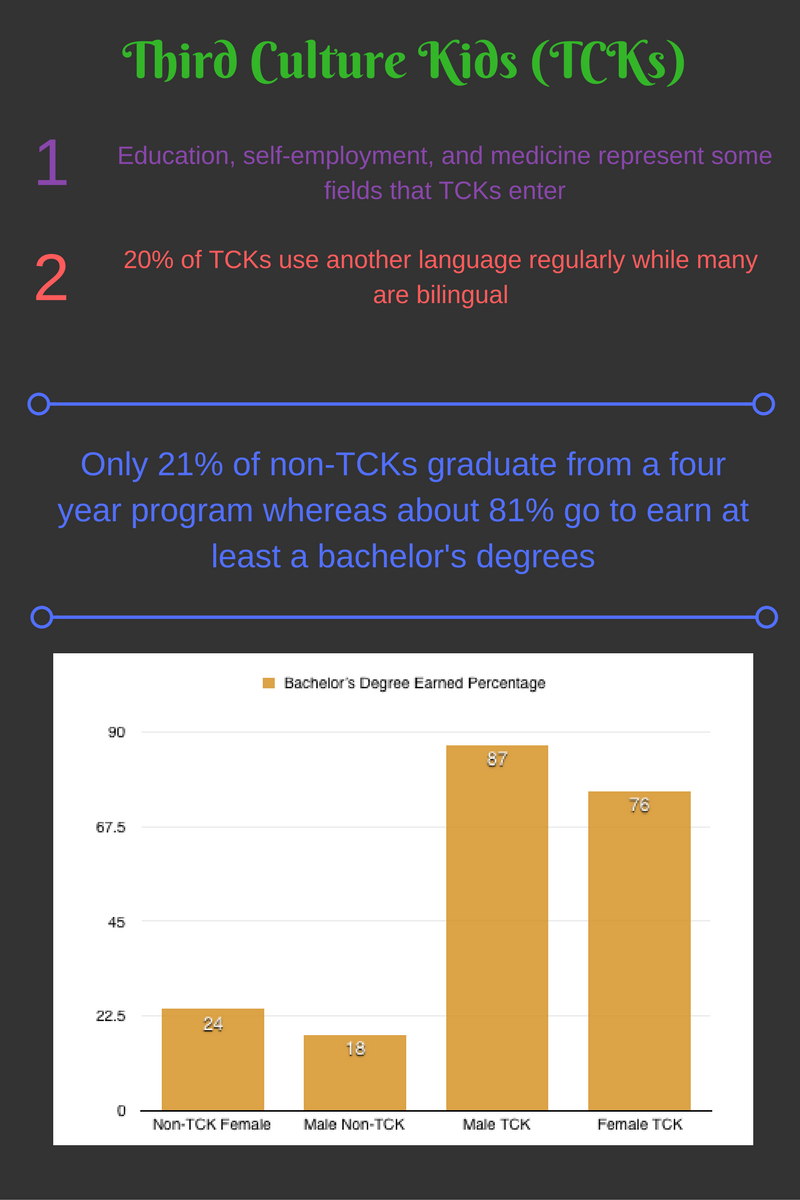Third culture kids or TCKs are whisked away from their home countries young, often going to a locale for a few years before moving on to the next, and then college. Once college ends, TCKs go on their own grand journey inevitably reaching a point where they themselves are in a position to offer their own children an international journey.
Third Culture Kid FAQ
Who are some famous Third Culture Kids?
- 44th President Barack Obama
- Actor Hugo Weaving
- Actor Viggo Mortensen
- Novelist Mohsin Hamid
Simply speaking, third culture kids are the children of expats who have spent the majority of their childhood in a culture that is not of their parents. TCKs are often children of overseas military personnel, diplomats, teachers, and more recently international businesses. TCKs deal with the exact issues as other children due: depression, forming and maintaining relationships, and development of a sense of self. What differs for TCKs is that their constant relocation exasperates the issues to somewhat unnerving levels.
Depression becomes common place as TCKs deal with culture shock. Relationships (both platonic and romantic) are difficult to maintain even during the advent of the social media era. Speaking from personal experience, Friendships are difficult due to distant regardless of social media. No longer being in a friend or friend group’s immediate vicinity, strains relationships and leads to slow drifting apart that you didn’t realize occurred. Even furthered exasperated by constant relocation which doesn’t usually allow for the formation of strong bonds with others. Most strikingly, a lot of TCKs have trouble establishing a foothold for themselves in adulthood as they still have no clear sense of self.
Third Culture Kid FAQ
Where do you come from? (addressed to a TCK)
- Never ask this question (kidding), just be ready to be confused by lots and lots of travel lines on a world map.
TCKs have to deal with many factors in life and having the resources to aid themselves has become easier with the internet age. While this is a positive, the resources available are unfortunately outdated. In recent years, there has been a noticeable lack of updated research studies with the one of the important books on the topic only recently being updated back in 2010. As a result, a lot of the available information is still technically valid but the passage of time has made them less credible as factual.

The following infographic’s information is an example of this. The information is still relevant because newer studies are generally lacking but time does call these statistics into question.
Depression is a common mental disorder amongst teenagers according National Institute of Mental Health. TCKs like everyone else also go through it, but suffer from more profoundly due to their situations. Two specific catalysts for depressions are major change or personal personal problems. TCKs deal with these two on the regular due to the constant resettling. So unlike most who can at least start to get better; In TCKs, it becomes a recurring issue that actually becomes worse across time.
In Third Culture Kids: Growing up among Worlds by David Pollock and Ruth Van Reken published in 1999, depression is defined as being a later stage of unresolved grief. Depression is supposed to represent the point when the reality of loss actually and as such is a natural part of the ongoing grief process. However, Pollock and Van Reken state that the key issue that defines TCKs is an inability to distinguish their personal grief and are unable to move on.
Unresolved grief actually plays a huge part into how critical relationships are affected and as such let’s shift to the dynamic of TCK relationships before moving forward.
Third Culture Kid FAQ
What kind of accent is that?
- The simplest answer is an international one. However, the TCK accent generally sounds American with hints of accents from the countries you’ve lived, and the friends you interact with.
How many languages can TCKs speak?
- Most TCKs are known to be at least bilingual with their mother tongue as well as one other school learnt language be another.
Relationships are generally speaking important to one’s growth. TCKs once again get the short end of the stick. More positively, TCKs make lots of friends but also lose those friends just as quickly due to the nature of TCK life. While, TCKs are able to bond quickly to each other, they are plagued by the unrelenting truth that TCK life more often than not causes strife in one’s life. The pain suffered by the constant mobility leads to the development of safety patterns against future relationship related suffering.
That being said shifting back to the unresolved grief affects on relationships. As stated by Van Ruken and Pollock, “withdrawal is simply another way to avoid their own pain. Some TCKs refuse to make contact with anyone from the past”. This quote specifically demonstrates that grief can affect our handling of relationships by shutting people out to effectively manage our pain.
TCKs are a troubled bunch. They develop just like everyone else but have experienced things that distinguish them from others. Third Culture Kids struggle a lot in their lives with issues that could affect them for the rest of their lives regardless of the positive experience retained. However, while they do experience a lot of negativity, TCKs can generally rise above it and become potential captains of industry. TCKs represent the future, the world strives for in light of recent tumultuous times.
Sources
1. https://www.nimh.nih.gov/health/statistics/prevalence/major-depression-among-adolescents.shtml
2. http://www.medicinenet.com/script/main/art.asp?articlekey=55167
3. Pollock, David C., and Van Reken, Ruth E.. Third Culture Kids : Growing Up Among Worlds. New York, NY, US: Nicholas Brealey America, 2010. ProQuest ebrary. Web. 22 November 2016.
4. http://www.tckworld.com/useem/art5.html
5. http://www.tckworld.com/useem/art2.html
6. http://www.beginningwithi.com/2009/04/05/famous-tcks-third-culture-kids-in-the-news-and-in-history/